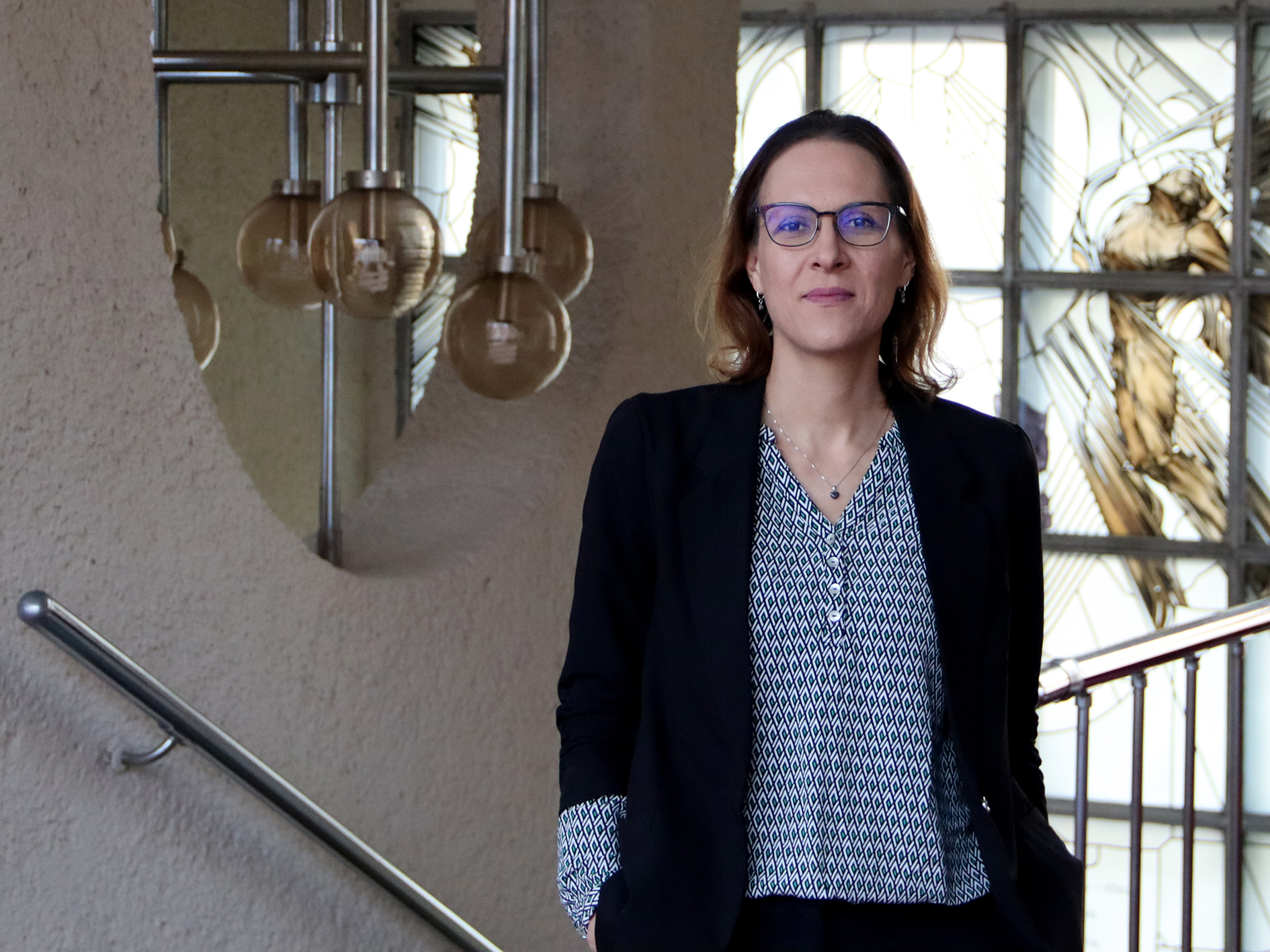 Dr. Aušra Kairaitytė-Užupė, a member of the research group “Culture and Digital Humanities at the Institute of Languages, Literature and Translation Studies of the Kaunas Faculty, took part in the winter training week at Leiden University in the Netherlands in the framework of the “Erasmus+"” program of Vilnius University. During the visit, the researcher got acquainted with the activities of the Digital Laboratory of Leiden University, attended the Digital Humanities Pilot Projects Symposium, and took part in the Digital Skills Workshop.
Dr. Aušra Kairaitytė-Užupė, a member of the research group “Culture and Digital Humanities at the Institute of Languages, Literature and Translation Studies of the Kaunas Faculty, took part in the winter training week at Leiden University in the Netherlands in the framework of the “Erasmus+"” program of Vilnius University. During the visit, the researcher got acquainted with the activities of the Digital Laboratory of Leiden University, attended the Digital Humanities Pilot Projects Symposium, and took part in the Digital Skills Workshop.
The visit confirmed the researcher's view that digital humanities, which links social sciences and arts with information technologies, are becoming increasingly important. The rapid development of technology offers more and more new opportunities for the application of methods to process data and pose new research questions, and the challenges posed by the interaction between humans and technology are becoming more pressing.
“In the Digital Skills Workshop organized by the Digital Lab at the Centre for Digital Humanities at Leiden University, Leiden University lecturers and students were able to try out easy-to-use, open-source tools that enable them to carry out a wide range of tasks, such as the creation of publications, websites, podcasts, maps, and text analysis,” says Dr. A. Kairaitytė-Užupė, who is most interested in the capabilities and the easy-to-use principle of the "Quarto" open source scientific and technical publishing system. The tool can be used to create and publish high-quality articles, websites, presentations, lecture slides or even books in a variety of formats, and to update the main document with the necessary corrections in different formats at the click of a button. She said that the tools tested in the hands-on training have increased the knowledge and skills of researchers in different scientific fields.
“During the Winter Training Week, a lot of attention was paid to the discussion on how artificial intelligence could facilitate the teaching and learning process and what challenges lie in the irresponsible use of ChatGPT opportunities, she says, convinced that artificial intelligence could be a great helper in the study and teaching process, offering new, creative ideas and helping to solve problems. “However, it is very important to be able to query properly and to evaluate the answers generated very carefully. AI languages have a tendency to create fictional facts that do not exist in reality. For example, it should not be used as a tool for writing text, as there is a risk of plagiarism,” says the researcher.
During the sessions participants were also reminded to avoid sharing sensitive, personal, or other sensitive data with AI chat assistants, which should not be made public. Although AI developers publish privacy policies, the possibilities of collecting and using these data remain unknown now. "The use of AI in the study process is inevitable, and the discussions also considered possible procedures for such use, for example, in the context of publications, these and other study-related tasks. For example, to use the information generated by the AI, it is necessary to indicate which language model has been used and not to present the answers given by the model as one's own original thoughts,” emphasizes Dr. A. Kairaitytė-Užupė.
According to the researcher, the presentation of digital humanities projects revealed an even greater diversity of topics to be explored and of the use of digital methods. “The small-scale studies show the possibilities and prospects of using text analysis, virtual reality, 3D printing and scanning, and mapping applications. Issues of authorship of text messages in criminology have been analysed, and virtual reality scenarios for language learning have been presented. The results of a project on the texts of tomb epigrams are interesting, revealing the extent of the mobility of Greek and Roman women and men, shares the researcher. The mapping produced by this study, using digital data visualisation tools, complemented the results obtained by traditional qualitative and textual analysis methods, and highlighted the prospects for further research. The Pilot Projects Symposium discussed the advantages and disadvantages of 3D printing and 3D scanning of museum art treasures, and the negative attitudes of indigenous Mexican cultural groups towards the application of digital technologies. “The latter example of the project showed how important it is not only to understand and apply digital technologies, but also to understand the worldview of different cultures and the values of their inhabitants,” says a representative of the VU KNF, who was introduced to the interesting research carried out by the researchers at the Digital Humanities Pilot Projects Symposium.
The visit also included a trip to the Digital Laboratory of the Centre for Digital Humanities at Leiden University where the lecturers and students have the opportunity to visit and use the equipment at their convenience, to apply it in their research, to conduct experiments, and to get advice.
The contacts made during the trip and the skills acquired during the training allowed not only to deepen professional knowledge, but also to get acquainted with the university environment, the local culture, to get new ideas and good emotions.